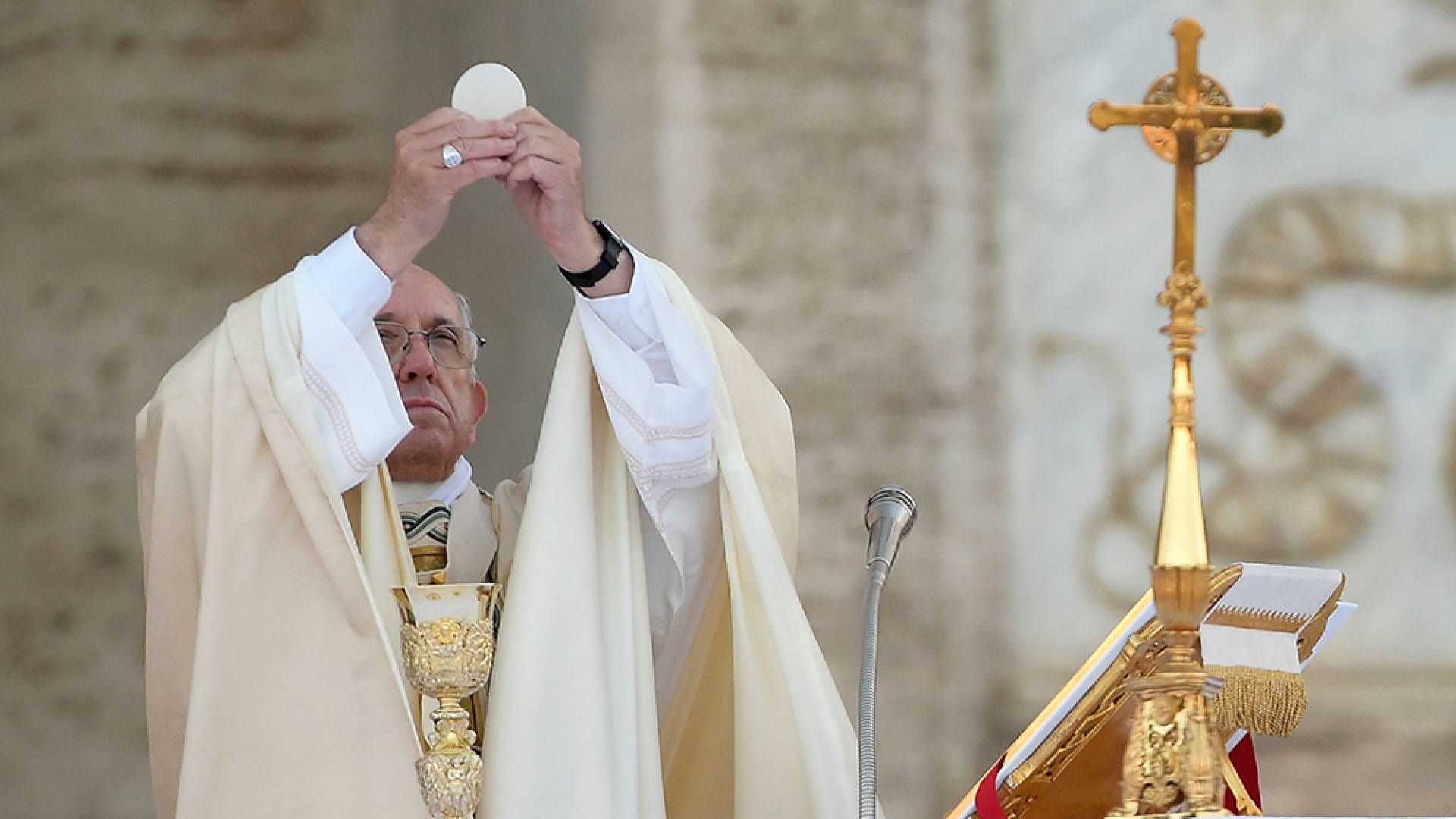Confusion in the Church and World: The Society's Stance

The Society of Saint Pius X firmly embraces a traditional Catholic worldview. We seek to give God the worship that is His due and lead souls to Him by the propagation of the traditional Mass and sacraments - the means of sanctifying grace in our lives and our union with God.
A Crisis
Because of its loyalty to Tradition, the Society often encounters resistance. But although the reforms of the recent Council are praised in the world for the most part, it is a fact that Vatican II brought the Catholic Church into an unprecedented crisis.
"The smoke of Satan has penetrated into the temple of God through some crack"
Paul VI lamented on June 29, 1972. Pope Benedict XVI, in his letter to the bishops of the world on March 10, 2009, wrote that the belief "to extinguish much of the world" was threatening "like a flame that can't find any more food."
The decline of Catholic life was caused by a crisis of faith emanating from the pulpits and Catholics themselves. There is no point today of the Creed that is not contested by Catholic priests, professors, and even bishops, whether it's the divine nature of Our Lord, the salvation of the world through His crucifixion, His true resurrection, or the foundation of the Church.
Witness to Catholic Tradition
The Society, on the other hand, adheres to the perennial Faith of the Church. It represents no special teachings but lives from the Faith that has shaped countless generations of Catholics and is still alive today. It is governed by the Magisterium of the Church, which found its expression in the councils and teaching of the popes, and in light of which the Second Vatican Council and its subsequent popes must be judged, since what was true until 1965 cannot suddenly become wrong.
The Society believes that Christ founded only one Church and that the Catholic Faith was not an invention of men, but was revealed by God Himself. The Society continues to insist that man is called to an eternal life with God, but there is also eternal hell for those who die away from God in mortal sin. It is therefore not indifferent what man believes and to which religion he belongs.
Sadly, many confusing and erroneous ideas have weakened and continue to weaken our modern understanding of the truth. These false teachings draw souls away from God.
Stirred by pity and compassion, the SSPX seeks to expose the grave dangers such ideas pose to the ultimate happiness both of every individual and of society as a whole.
Who can deny that Catholics in the latter part of the 20th century are confused? A glance at what has happened in the Church over the past 20 years is enough to convince anyone that this is a relatively recent phenomenon. Only a short time ago the path was clearly marked: either one followed it or one did not. One had the Faith—or perhaps had lost it—or had never had it. But he who had it—who had entered the Church through baptism, who had renewed his baptismal promises around the age of 12 and had received the Holy Ghost on the day of his confirmation—such a person knew what he had to believe and what he had to do...many today no longer know. They hear all sorts of astonishing statements in the churches, they read things contrary to what was always taught, and doubt has crept into their minds.
We naturally ask, therefore, what brought on this state of things? (Archbishop Marcel Lefebvre, Open Letter to Confused Catholics, Ch. 1)
Archbishop Lefebvre's statement of November 21, 1974